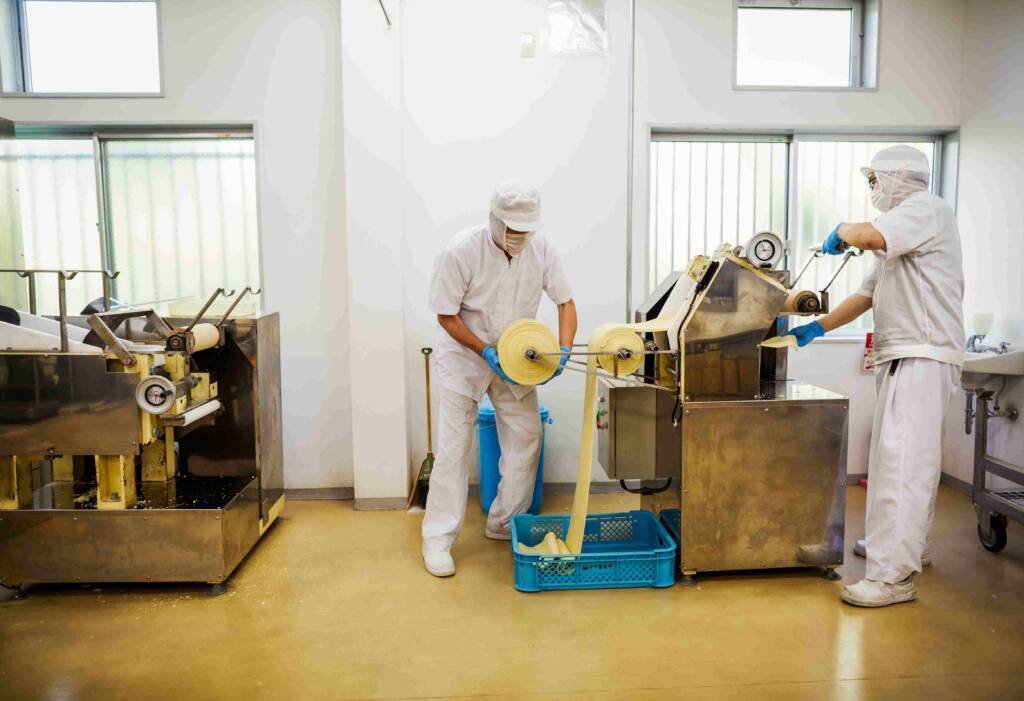In the food processing industry, equipment reliability and cleanliness are paramount. One often-overlooked component that plays a crucial role in both efficiency and hygiene is the pulley. These small but mighty devices are essential for the smooth operation of machinery.
Without high-quality pulleys, food processing equipment can suffer from mechanical failures and contamination risks.
Why High-Quality Pulleys Matter in Food Processing Equipment
- Enhanced Efficiency:
High-quality pulleys ensure smooth and consistent movement within food processing machinery. They help in minimizing friction and wear, which can otherwise lead to inefficient operation and higher energy consumption.
When pulleys are built with precision, the entire mechanical system operates more efficiently, saving time, energy, and reducing the need for frequent repairs or replacements.
- Prevention of Contamination:
In food processing, hygiene is of utmost importance. Low-quality pulleys may accumulate food particles or bacteria, potentially leading to contamination. High-quality, durable pulleys are made from materials that are resistant to bacteria and easy to clean.
By using non-porous materials that are resistant to food residues, high-quality pulleys help maintain sanitary conditions in food processing facilities.
- Longer Equipment Lifespan:
High-quality pulleys are built to last. Their durability reduces the wear and tear on machinery, which ultimately extends the lifespan of the entire food processing system.
Less frequent replacements mean fewer disruptions in production and reduced operational costs over time.
- Compliance with Food Safety Regulations:
Food processing facilities must adhere to strict hygiene and safety standards. High-quality pulleys made from FDA-approved materials are designed to meet these regulatory requirements.
The use of certified pulleys helps companies avoid costly fines or shutdowns due to non-compliance with food safety regulations.

Types of High-Quality Pulleys for Food Processing Equipment:
- Stainless Steel Pulleys: These are corrosion-resistant, easy to clean, and provide long-lasting performance.
- Plastic Pulleys: Made from food-safe, durable materials, these pulleys are lightweight and resistant to moisture and contamination.
- Rubber-Coated Pulleys: These offer excellent grip, reducing slippage and minimizing mechanical wear.
Advantages of Using High-Quality Pulleys:
- Increased Productivity: Reduced downtime and fewer repairs lead to more productive operations.
- Improved Cleanliness: Hygienic pulleys help in maintaining higher standards of cleanliness.
- Cost Savings: Long-lasting pulleys reduce the need for frequent replacements and repairs.
The Cost of Ignoring Pulley Quality in Food Processing Equipment
While high-quality pulleys provide numerous benefits, using cheap, subpar pulleys in food processing equipment can lead to several negative consequences:
- Increased Maintenance Costs: Substandard pulleys wear out faster, leading to frequent replacements and higher repair costs.
- Higher Contamination Risks: Poor-quality pulleys can accumulate food residues, posing serious hygiene risks that compromise food safety.
- Decreased Operational Efficiency: Inefficient pulleys increase energy consumption and reduce the overall efficiency of machinery, affecting production output.
Conclusion:
Investing in high-quality V-belt pulleys is not just a matter of improving machinery performance but also a critical step in ensuring the hygiene and safety of food products. These pulleys play a key role in the smooth operation of conveyor belts, mixers, and other vital food processing equipment.
Using durable, precisely engineered pulleys helps prevent equipment failures, reduces downtime, and minimizes the risk of contamination, an essential factor in complying with strict food safety regulations.
Food processing businesses must prioritize product quality to maintain operational efficiency and meet hygiene standards.
FAQ’s:
- Why are high-quality pulleys crucial for efficiency in food processing equipment?
High-quality pulleys minimize friction and wear, ensuring smooth operation and reduced energy consumption.
- Can low-quality pulleys cause hygiene issues in food processing?
Yes, low-quality pulleys may harbor food particles and bacteria, increasing the risk of contamination.
- How do high-quality pulleys extend the lifespan of food processing machinery?
Durable pulleys reduce wear and tear on machinery, leading to fewer breakdowns and longer equipment life.
- Are high-quality pulleys compliant with food safety standards?
Yes, many high-quality pulleys are made from FDA-approved materials and comply with food safety regulations.
- What materials are used to make high-quality pulleys for food processing?
High-quality pulleys are typically made from stainless steel, food-safe plastics, or rubber-coated materials.
